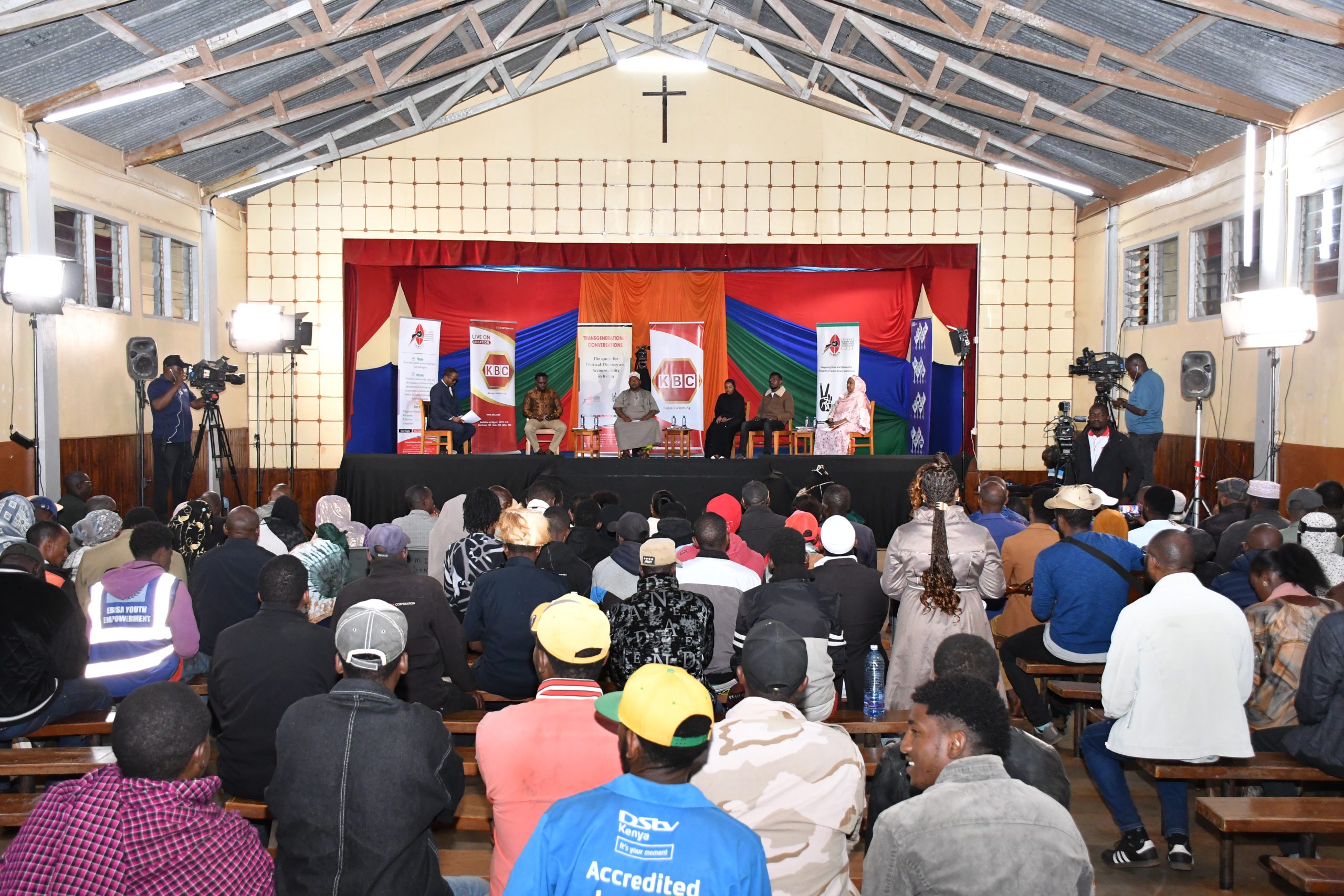
#AmaniKwaGround conversations kick off in Marsabit to confront Kenya’s most pressing issues
The National Cohesion and Integration Commission (NCIC), in collaboration with the Kenya Broadcasting Corporation (KBC), has inaugurated the first of a series of Transgenerational Conversations in Marsabit, bringing together community leaders, youth, women, elders, scholars, and policymakers to tackle the country’s escalating generational and societal issues.
Held under the theme #AmaniKwaGround, the town hall meeting in Marsabit provided a platform for residents to engage in open dialogue on youth unemployment, generational disconnection, governance, and community tensions. The forum was moderated by KBC news anchors Kamche Menza and Abdiaziz Hashim, who facilitated a candid discussion involving both panelists and participants.
“We are at an inflection point, and the conversation must begin at the grassroots,” said Dr. Danvas Makori, NCIC Commissioner. “This is not about us speaking to people—it’s about facilitating people-led, people-focused, and inclusive conversations.”
Dr. Makori cautioned that the 2024 Gen Z-led protests regarding the Finance Bill were merely a symptom of deeper societal neglect, particularly the exclusion of youth voices from the policymaking process.
“Long before the protests, we saw the signs – youth apathy, low voter turnout, and growing frustration. That’s why we created this framework for Transgenerational Conversations in 2023, to listen, engage, and act,” he explained.
Makori highlighted that Marsabit, which has long been affected by inter-community conflict, represents a unique space where homegrown solutions can be developed.
“When conflict flared here, it was community dialogues – 24 sustained engagements – that helped calm tensions. Solutions came from the people themselves.”

Youth voices at the event echoed this call for engagement while also demanding concrete action.
“We are ready to talk, but we want to be heard,” said Stephen Roba Wako, a youth peace ambassador. “Gen Z is educated, informed, and capable. But even when we raise issues including in social media, we’re ignored. Even digital content – our space for innovation – is being taxed.”
Others, such as communications expert Farida Mohamed, drew attention to Marsabit’s demographic reality, noting that “nearly 60% of our population is under 25. The youth are idle, unemployed, and frustrated. Ethnic divisions and political incitement only exacerbate the situation.”
Sheikh Mohamednur Kuli, a community and religious leader, lamented the consequences of youth disillusionment.
“Many of our young people have degrees but no jobs. We urge the government to ensure fairness in job opportunities. We thank President Ruto for the housing project, but we want similar opportunities here in Marsabit as well,” said Sheikh Kuli.
Women leaders also stressed the importance of fostering mutual understanding across generations.
“We’re raising Gen Z, but we are also elders. As mothers we find ourselves between a rock and a hard place,” said Nuria Gollo Halake, CEO of MWADO. “We must stop trying to mold today’s youth using yesterday’s tools. Dialogue is the only path forward.”
“I have been a teacher for the last 15 years. What we saw during our early days as teachers and what’s happening today is totally different. This is because we are handling a totally different kind of generation which we sometimes try to put in our own situation – forcing them to behave and do what we used to do,” she explained
Throughout the forum, speakers urged government agencies, policymakers, and the media to listen more attentively and to create spaces where all generations can contribute to shaping Kenya’s future.
“I’ve sat in policy meetings discussing youth issues with no youth present in the room,” admitted Dr. Makori. “That must change.”
The Marsabit town hall is the first of many similar dialogues to be held across the country. The NCIC and KBC plan to continue hosting these forums in other counties, aiming to foster understanding and address grievances from the grassroots level upwards.

